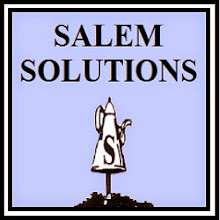The
Interview Process: How Well Do You Know the Basics?
Jessica Holbrook Hernandez
We're going to focus on
the interview process. After all, writing a great resume and cover letter only
gets you partly through the hiring process. Understanding how companies are
currently interviewing can help you succeed at that stage of the game as well.
1.Different Types of Interviews Ten years ago, hiring wasn't that complicated. You
submitted an application to the hiring manager (more often than not, the person
who would eventually be your supervisor), and that person would then schedule a
face-to-face interview with you. And after the interview, you would either get
the job or not.
Today, a tremendous business has
grown up around recruiting, screening, and hiring qualified candidates. With so
many more people involved in the hiring process, there are now many different
types of interviews that a candidate may go through prior to receiving a job
offer. Here are some examples:
Basic background screening Some companies outsource their background screening to
other companies that do nothing but background checks. An employee for one of
these companies may call you to confirm information such as your education
history, legal name, and most recent place of employment. These screening calls
are typically very short-five minutes at most.
Preliminary phone or online
interview After you've applied for a job, you
may receive a phone call from a recruiter or human resources staff person at
the company where you applied. During these types of calls, you will be asked
questions about why you applied for a particular position and what you believe
your strengths to be. The caller will sometimes mention salary in this type of
call to be sure the position pays in the range you were expecting. You may be
contacted by e-mail rather than telephone, either asking you to respond to
specific questions, or to take a personality or skills screening test somewhere
online.
Full-blown phone interview Full telephone interviews usually take at least 30
minutes-and can sometimes take an hour or more-depending on the complexity of
the position. Full phone interviews are typically conducted by the person who
would be supervising you in your new position. These interviews are fairly
in-depth and are often used by employers conducting national or regional
searches to fill their positions. Although telephone interviews can be
extensive, almost all employers use an in-person interview prior to actually
making a job offer.
In-person interviews Personal interviews are generally the most anxiety
provoking for job seekers, as they require you to worry about getting to the
office on time and looking professional. Personal interviews typically take
between 30 and 60 minutes. Depending on the complexity of the position and the
structure of the company, you may have already cleared some of the hurdles
listed above before ever having secured a personal interview. In contrast, some
companies conduct a series of personal interviews utilizing different levels of
management until the right candidate has been winnowed out. Some companies use
both techniques: preliminarily creening candidates and subjecting them to
multiple rounds of personal interviews.
No matter how a potential employer
structures its interview process, everyone involved-right from the start-should
be willing to explain the process, as well as how often you should expect to
hear from them. Telephone interviews are a huge part of the hiring process
today, so treat each one as seriously as you would an in-person interview!

No comments:
Post a Comment